Introduction
 There’s a growing reliance and expectance of networks in the home to handle all of this digitised media that we want to chuck around our homes, from room to room.
There’s a growing reliance and expectance of networks in the home to handle all of this digitised media that we want to chuck around our homes, from room to room.
Many houses that were constructed recently, or depending on the country you live in, within the last three years, are network cabled with Cat5+. The majority of us who live in houses over three years old find they have a problem.
WiFi has helped many, but many houses in Europe have walls of considerable thickness, and without regular repeaters, WiFi can struggle to provide complete coverage.
Usually beyond that there the idea of retro fitting of Cat5 cabling to a house. Given the level of mess created, this usually doesn’t go down too well with the neater partner in a relationship.
Power Line Communication (PLC) has been designed to fill this gap in the market. PLC uses an adaptors that plugs into the houses main circuit and the network, using the house’s power cabling and the network cabling.
You may think that plugging your computer into the mains power by unconventional means is just asking for trouble. People used to think that electric washing machines were a bad idea as ‘electrics and water do not mix’. However, PLC has been around for some time now in the form of narrow band, and since the year 2000 a broadband communication channel has been available.
LEA Universal NetPlug
We’ve had our hands on the LEA Universal NetPlug for a while and ran it on trial for a while.
I installed two LEA NetPlug devices, one on my work computer upstairs and the other on my entertainment computer downstairs. The work computer is running Ubuntu Linux and the other, Microsoft Windows.
 What’s involved in getting the network setup? Basically nothing. Take the power lead, plug it into one end of the NetPlug. The Ethernet (RJ45) goes in the other end.
What’s involved in getting the network setup? Basically nothing. Take the power lead, plug it into one end of the NetPlug. The Ethernet (RJ45) goes in the other end.
With the second computer connected with the same 2-minute setup, you’re able to communicated between them, if they’re network software is setup.
If you’re OK running without encryption, then that’s all you need to do – no software required.
The only time you need to resort to using software is configuring the encryption. This uses 56 bit-DES encryption, which provides reasonable protection from those who aren’t paranoid about been snooped on.
Up to 16 NetPlug’s can be used on the same network.
The NetPlug is based on HomePlug v1.0.1 standard and they report a raw data speed of upto 14Mbps. These speeds are fine for most home computing needs including Web-browsing activity (your DSL connection is likely to be considerably slower than this anyway).
Testing
I checked to see if both computers had Internet access and could share files. They did and could, without any set-up programs or reconfiguration. They just worked.
There are some who say that vacuum cleaners interfere with PLC signal, so I did some cleaning in the vicinity of both computers, I even plugged the vacuum cleaner next to the PLC device. There was no notable lose in connection speeds.
Benefits
It is a lot faster to plug a device into a wall than it is to lay a single cable. It creates an instant network at the flick of a mains switch. The real benefit will come to people who use mobile networks such as LAN (Local Area Network) party goers. These people have to build a multi-computer network before the party even starts. Bring a PLC device and abolish trailing cables.
Comparison
 There are different ways of creating a computer network. A traditional wired network is the cheapest but takes the longest time to set-up, unless you do not mind trailing cables. PLC devices cost more but are the quickest to set-up, and do not require any new cables. Wireless networks are the most expensive but can take less time to set-up than a traditional wired network, and offer out of doors networking.
There are different ways of creating a computer network. A traditional wired network is the cheapest but takes the longest time to set-up, unless you do not mind trailing cables. PLC devices cost more but are the quickest to set-up, and do not require any new cables. Wireless networks are the most expensive but can take less time to set-up than a traditional wired network, and offer out of doors networking.
Conclusion
The LEA Universal NetPlug device is firmly positioned between traditional wired networking and wireless networking – in the cost and ease of set-up stakes. If you want a quick and easy way to set-up a network and do not need out of doors networking, the LEA Universal NetPlug device will do the job.
The styling isn’t going to get you excited, but over time, we’d imagine that PLC devices are going to become more ‘home friendly’, probably incorporated into the plug. In January 2006, LEA released a home-focued version of this – it’s smaller and looks a lot better.
Score 92%
+ve: Anyone can use it. Setup near instant. No problems running.
-ve: Styling could be slicker. Encryption setup only on Windows.
LEA Universal NetPlug
 Proving Niche is alive and living on UK IPTV pioneer HomeChoice, they’ve today announced an African Movie Channel, self described as “the UK’s first channel dedicated to showing new and recent releases from the major African film production houses.”
Proving Niche is alive and living on UK IPTV pioneer HomeChoice, they’ve today announced an African Movie Channel, self described as “the UK’s first channel dedicated to showing new and recent releases from the major African film production houses.”![]() On another side, we see that HomeChoicePR department have their own MySpace account, which we think is pretty enterprising, but it does make some of us at Digital-Lifestyles wonder, are we the only people without at least one MySpace? We also note the perversity of Nick S having a “huge DVD collection”, given he works for a VOD company!
On another side, we see that HomeChoicePR department have their own MySpace account, which we think is pretty enterprising, but it does make some of us at Digital-Lifestyles wonder, are we the only people without at least one MySpace? We also note the perversity of Nick S having a “huge DVD collection”, given he works for a VOD company!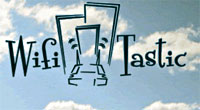 A clever new scheme from WifiTastic makes it pie-easy for home broadband users to turn their connections into revenue-generating wireless hotspots.
A clever new scheme from WifiTastic makes it pie-easy for home broadband users to turn their connections into revenue-generating wireless hotspots.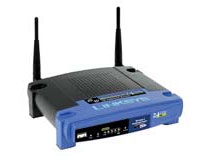 Although free shared connections tend to appeal to our right on ideals more, there’s no denying that this smart, simple system looks to benefit both owners and those who need Wi-Fi access and are prepared to pay for it. Other companies like the
Although free shared connections tend to appeal to our right on ideals more, there’s no denying that this smart, simple system looks to benefit both owners and those who need Wi-Fi access and are prepared to pay for it. Other companies like the  Spurred on by the huge rise of original content being created for computers and mobile devices, The National Academy of Television Arts & Sciences has decided to officially recognise the growing medium.
Spurred on by the huge rise of original content being created for computers and mobile devices, The National Academy of Television Arts & Sciences has decided to officially recognise the growing medium. Donning our best party frock, we’re delighted to stand up to the podium and announce the nominees:
Donning our best party frock, we’re delighted to stand up to the podium and announce the nominees: Live 8 on AOL – live feeds and on-demand footage of last year’s enormo charity gig.
Live 8 on AOL – live feeds and on-demand footage of last year’s enormo charity gig.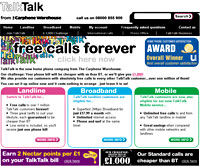 Carphone Warehouse are going to stir up a hornet’s nest in the telecoms industry if they go ahead with rumoured plans to introduce a free broadband package in the UK.
Carphone Warehouse are going to stir up a hornet’s nest in the telecoms industry if they go ahead with rumoured plans to introduce a free broadband package in the UK.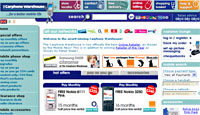 Some industry experts believe that Carphone Warehouse are looking to repeat the soaraway success of fabled freebie ISP Freeserve, who came out of nowhere to overtake BT in the late 90s.
Some industry experts believe that Carphone Warehouse are looking to repeat the soaraway success of fabled freebie ISP Freeserve, who came out of nowhere to overtake BT in the late 90s. PR spin-mesisters at Carphone are thought to have christened their broadband campaign “Independence Day”, based on a feeble pun that it will give customers independence from BT.
PR spin-mesisters at Carphone are thought to have christened their broadband campaign “Independence Day”, based on a feeble pun that it will give customers independence from BT. Hollywood has finally embraced the online movie distribution business with the launch of two new digital services that will make films available to download on the same day of their DVD release.
Hollywood has finally embraced the online movie distribution business with the launch of two new digital services that will make films available to download on the same day of their DVD release. The company will start offering more than 200 movies for sale online, with Universal’s Oscar-winning “Brokeback Mountain” set to be the first major Hollywood blockbuster to be simultaneously released as a DVD and digital download.
The company will start offering more than 200 movies for sale online, with Universal’s Oscar-winning “Brokeback Mountain” set to be the first major Hollywood blockbuster to be simultaneously released as a DVD and digital download. How it works
How it works We take a look. And get annoyed
We take a look. And get annoyed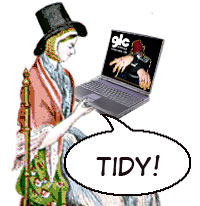 The Welsh Assembly has announced today that they’ve selected the BT Group to provide the broadband infrastructure for the remaining exchange areas in Wales.
The Welsh Assembly has announced today that they’ve selected the BT Group to provide the broadband infrastructure for the remaining exchange areas in Wales.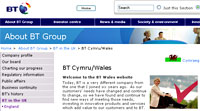 Once completed, virtually every single household in Wales will be able to join in with the broadband revolution and get stuck into video conferencing, Voice over Internet Protocol (VOIP) and other business and entertainment uses.
Once completed, virtually every single household in Wales will be able to join in with the broadband revolution and get stuck into video conferencing, Voice over Internet Protocol (VOIP) and other business and entertainment uses. Compared to some other European countries, Wales’ achievement is significant; in Ireland, for example, only about 18.0% of the population have broadband connections.
Compared to some other European countries, Wales’ achievement is significant; in Ireland, for example, only about 18.0% of the population have broadband connections.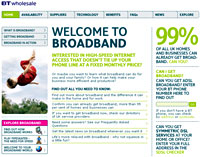 BT has announced that some of its users should be able to obtain broadband speeds of ‘up to’ 8 Mbps by the end of March.
BT has announced that some of its users should be able to obtain broadband speeds of ‘up to’ 8 Mbps by the end of March.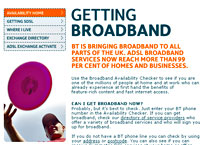 All good news you’d think, but the new connectivity comes with a bag full of caveats related to physical factors, with only those lucky enough to live or work close to their local telephone exchange able to scoop up the maximum 8Mbit/s speed.
All good news you’d think, but the new connectivity comes with a bag full of caveats related to physical factors, with only those lucky enough to live or work close to their local telephone exchange able to scoop up the maximum 8Mbit/s speed. Paul Reynolds, BT’s Wholesale chief executive, was keen to big up his company’s commitment to broadband availability in the UK “Thanks to BT’s continued investment in the broadband network, the UK now boasts the highest level of broadband availability in the G8. We’re now building on those efforts in becoming the first operator in the UK to commit to a national service which is capable of broadband speeds of up to 8Mbit/s.
Paul Reynolds, BT’s Wholesale chief executive, was keen to big up his company’s commitment to broadband availability in the UK “Thanks to BT’s continued investment in the broadband network, the UK now boasts the highest level of broadband availability in the G8. We’re now building on those efforts in becoming the first operator in the UK to commit to a national service which is capable of broadband speeds of up to 8Mbit/s. It is with great sadness that we hear that UK IPTV innovator KiT (Kingston interactive TV) is to close its doors on 3rd April. We’ve always been huge fans of their work.
It is with great sadness that we hear that UK IPTV innovator KiT (Kingston interactive TV) is to close its doors on 3rd April. We’ve always been huge fans of their work.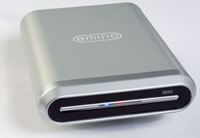 It’s always struggled to get sufficient subscribers to support the service. Hull is an area with much financial deprivation with the average family income around £14,000/year. It’s understood that the high point of subscriptions, 10,000 at the start of the service, has lead to the current low point of 4,000. The level of financial loses and the need for KiT to refresh its now 7 year old IPTV kit is understood to have lead to the decision. The parent company, Kingston Communications (KC), feel that they can no longer justify supporting the service
It’s always struggled to get sufficient subscribers to support the service. Hull is an area with much financial deprivation with the average family income around £14,000/year. It’s understood that the high point of subscriptions, 10,000 at the start of the service, has lead to the current low point of 4,000. The level of financial loses and the need for KiT to refresh its now 7 year old IPTV kit is understood to have lead to the decision. The parent company, Kingston Communications (KC), feel that they can no longer justify supporting the service Unknown to many, Blockbuster Video have been running a VoD trial on KiT for a couple of years. Their first in the world.
Unknown to many, Blockbuster Video have been running a VoD trial on KiT for a couple of years. Their first in the world. There has been some wondering around the Digital-Lifestyles office if the delay in closing KiT has been a considered position by the KC. By waiting until now to close KiT, the rest of the world now realise that they all need to be in IPTV, and the number of potential purchasers will have increased.
There has been some wondering around the Digital-Lifestyles office if the delay in closing KiT has been a considered position by the KC. By waiting until now to close KiT, the rest of the world now realise that they all need to be in IPTV, and the number of potential purchasers will have increased.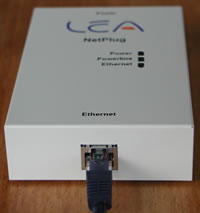 There’s a growing reliance and expectance of networks in the home to handle all of this digitised media that we want to chuck around our homes, from room to room.
There’s a growing reliance and expectance of networks in the home to handle all of this digitised media that we want to chuck around our homes, from room to room.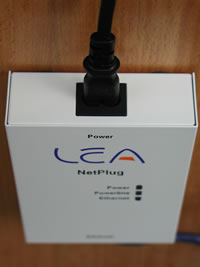 What’s involved in getting the network setup? Basically nothing. Take the power lead, plug it into one end of the NetPlug. The Ethernet (RJ45) goes in the other end.
What’s involved in getting the network setup? Basically nothing. Take the power lead, plug it into one end of the NetPlug. The Ethernet (RJ45) goes in the other end.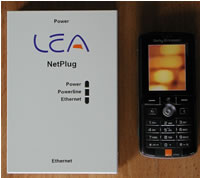 There are different ways of creating a computer network. A traditional wired network is the cheapest but takes the longest time to set-up, unless you do not mind trailing cables. PLC devices cost more but are the quickest to set-up, and do not require any new cables. Wireless networks are the most expensive but can take less time to set-up than a traditional wired network, and offer out of doors networking.
There are different ways of creating a computer network. A traditional wired network is the cheapest but takes the longest time to set-up, unless you do not mind trailing cables. PLC devices cost more but are the quickest to set-up, and do not require any new cables. Wireless networks are the most expensive but can take less time to set-up than a traditional wired network, and offer out of doors networking. ‘The Apprentice’ TV show has been a smash hit in the UK, much the same as it was in the US. The BBC now plan to use it as the ‘first extensive broadband experience,’ as part of the BBC TV Plus project.
‘The Apprentice’ TV show has been a smash hit in the UK, much the same as it was in the US. The BBC now plan to use it as the ‘first extensive broadband experience,’ as part of the BBC TV Plus project. Initially looking at these advances it’s easy to get excited, but when looked in context of how long it’s taken, a frustrations come to the surface.
Initially looking at these advances it’s easy to get excited, but when looked in context of how long it’s taken, a frustrations come to the surface.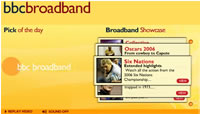 (Funnily enough, after reading that article the person responsible for the project contacted us and it turned out to be someone whose previous work outside the BBC we’d been very impressed with.)
(Funnily enough, after reading that article the person responsible for the project contacted us and it turned out to be someone whose previous work outside the BBC we’d been very impressed with.)